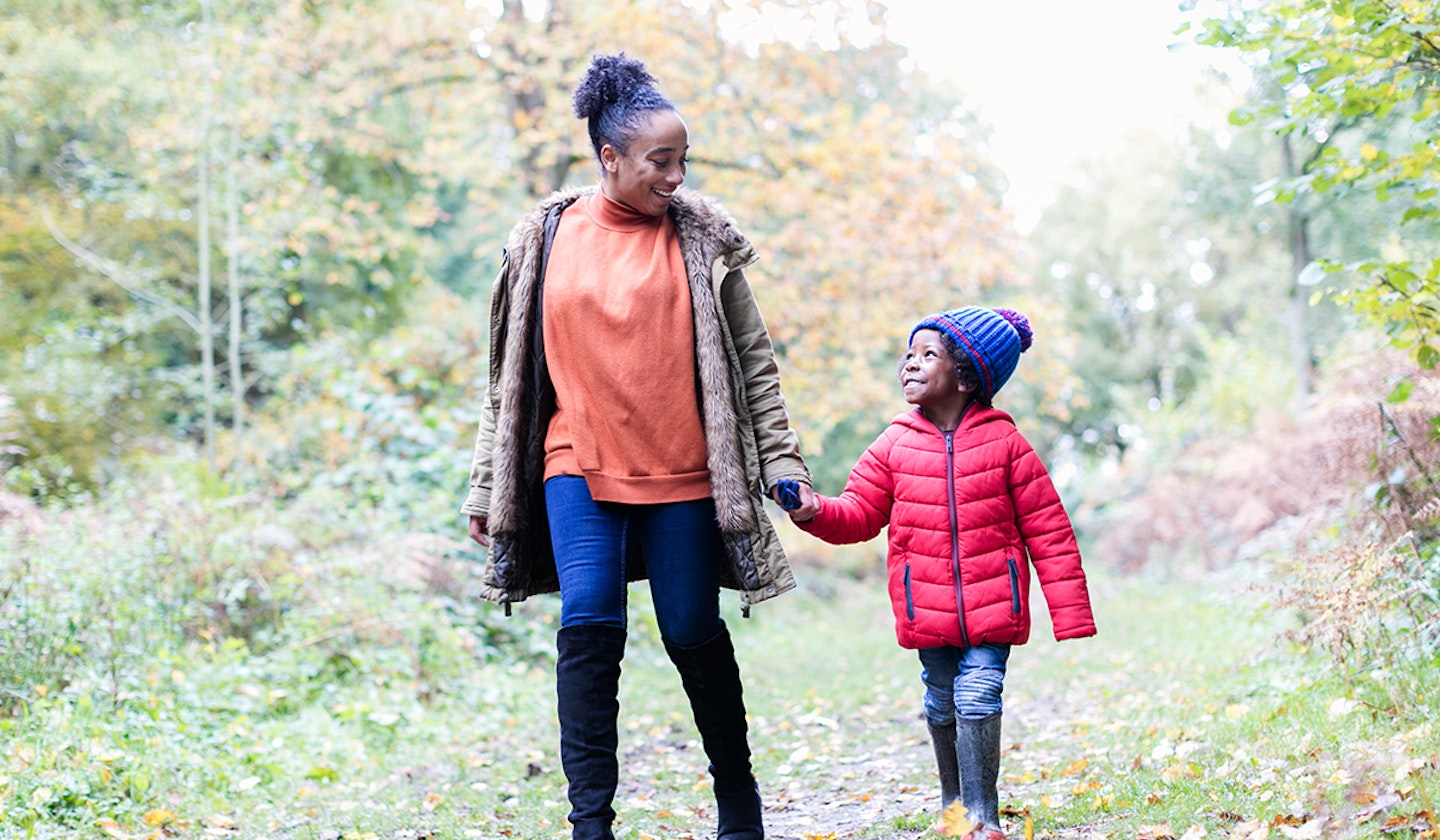Trying to stay healthy and look after yourself can be tricky at the best of times, not to mention when it’s freezing cold outside. Colds and winter bugs are practically unavoidable and without a doubt, at least one member of your family will come down with something this winter.
Especially when you have a toddler, life can seem like an endless episode of sneezes, coughs and poorly time. "Most toddlers will catch 10-12 colds per year and the vast majority resolve spontaneously after a week or so,’ says midwife Karen Mardon of Sleepthrough Limited. "Toddlers are building up their immune systems and as they grow older, the number of colds contracted tends to reduce."
While it’s impossible to completely defend your toddler from winter colds and illness, there are lots of ways that you can at least help to build up his defence barriers. We’ve rounded up the things you should and shouldn't be doing this winter, to keep you and your family happy and healthy – whatever the weather.
1. Keep a handle on hygiene
Probably the best way to help your toddler fight off germs is by teaching him the importance of hygiene.
"Be mindful of simple hygiene, for example, washing hands regularly and cleaning toys," advises private health visitor, Julia Headland."Toddlers often pick toys up and put them straight into their mouths and in a toddler group situation where toys are readily shared, this may spread germs."
Buy a fun, child-friendly soap for your child to use before and after eating, and after going to the loo. Try and get him into a routine of washing his hands – make it part of his morning and evening routine. And when you’re out and about, carry an antibacterial hand wash or wipes with you.
2. Wrap up warm

Save on heating bills and keep everyone warm by layering up.
"Instead of wearing just one thick jumper, try layering for insulation," advises Julia.
Read more: The best winter coats for toddlers and babies and How to keep heating bills down this winter
When using the heating, try not to have the house too hot. "Try and keep the house temperature between 16 and 21 degrees and use draught excluders to stop heat disappearing from the rooms," says Julia.
3. Eat healthily
A good and nutritious diet will help keep your family fighting fit throughout the winter.
"The Department of Healthadvises that all children from the ages of six months to five years are given supplements containing vitamins A, C And D in the form of vitamin drops," explains Julia. "This will be especially important for those with fussy eaters, but even for those children who do eat a well-balanced diet. It is still difficult to get enough vitamin D from food alone."
Read more:16 superfoods your toddler will love
"Try and go for a 'rainbow of colours' when it comes to fruit and vegetables. This variety will ensure you are getting a good mix of vitamins and antioxidants and eat good sources of fat such as nuts, seed and fish."
Try to get your family into a good food routine with a diet inclusive of all the food groups and plenty of fruit and vegetables – get some mealtime ideas from our recipe section.

4. Drink plenty
Staying hydrated is really important – particularly when the heating’s on full blast and drying out your skin.
"Drink fruit teas and water as a substitute for copious amounts of tea and coffee," Julia suggests, "and try to reduce the amount of alcohol you drink, as this can reduce the effectiveness of the immune system."
Make sure your toddler stays hydrated, aiming for five cups of water a day. If your tot doesn’t like water, try to steer clear of fruit juice (as it’s full of sugar and acidity) and instead offer your child some no added sugar squash.
5. Stock up on medicines
Keep your medicine cabinet filled up with paracetamol, ibuprofen, cold remedies and decongestants, so if someone does fall ill then you can quickly start treating them. Just remember to always keep medicines locked away or out of reach from your kids.
"If you have a compromised immune system or a long term health condition such as asthma, consider talking to your GP about the possibility of having a flu jab," Julia advises. "Equally, if you are pregnant, discuss the flu jab with your midwife."
This vaccination is also available to toddlers in certain areas of the UK as a nasal spray.
6. Get plenty of sleep
Use the winter months as a great excuse to stay in bed a little longer each day. It’s perfectly natural to sleep for longer at this time of year as it’s darker and colder, making it a great opportunity for the whole family to catch up on their sleep. Hello lie in! (That's 7am these days, right?)
"Adequate rest and sleep are essential for maintaining a healthy immune system," says Julia. Make sure you’ve got a great bedtime routine in place to encourage your toddler to have a good long snooze each night.
It’s natural to sleep more than often during the winter months as it’s darker for longer which makes you naturally tired. Take advantage and rest up.
"Over exhausting yourself can lower your immune system," says Julia. "Make sure that if you are busy with work or children, have early nights or at least try to get to bed before 11pm if you can."

7. Try to give up smoking
If you’re a smoker, consider giving up as it’s particularly bad for your health during the colder weather. "Smoking is terrible for your health as it can cause lung cancer and other respiratory problems," says Julia. "Plus, it’s been reported to compromise your immune system."
8. Resist the urge to turn up the heating
As cold as it may be, try not to whack the heating on full blast – it isn’t great for your family’s health.
"If the house is too hot it can lead to increased tiredness and it can dry out your skin as well," says Julia. "Try and keep the house temperature between 16 and 21°C and use draught excluders to stop heat disappearing from the rooms."
9. Don’t hide indoors
When the weather’s horrible, it is tempting to shut yourself up indoors but try not to be a couch potato just because it’s chilly.
"Lack of sunlight and the short days can lead to a drop in mood," explains Julia. So, make sure your family leave the house at least once a day to enjoy some natural light and fresh air. A good brisk walk can do a world of good.
Check out these fun days out for toddlers and babies in the colder months
10. Don’t forgo your exercise regime
If you’re a swimmer or a runner, slacking off in the winter is easily done. After all, who wants to run in the cold, dark mornings? But try to find ways around the weather, rather than ditching your workout completely. Maybe switch your pavement pounding for a session on a treadmill or take up online exercise classes.

11. Keep an eye on his health
You know your toddler better than anyone, so you’ll probably be first to notice if he’s coming down with something.
"Be aware of signs and symptoms of illness and seek medical attention if you suspect that your child is unwell with something serious," says Julia. "Trust your instincts as it is better to be safe than sorry."
Telling the difference between flu and a cold is easier if you know the symptoms like a runny nose or cough.
12. Make sure immunisations are up to date
Staying on top of your toddler’s immunisations is really important. It will make sure he can fight off any illnesses much more effectively. Your toddler can now have theflu vaccination, too.
